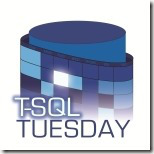
For this month’s #TSQL2day, Andy Yun asked folks to share about “something you’ve learned, that subsequently changed your opinion/viewpoint/etc. on something.”
Now, there are technical subjects I could share where I’ve changed my opinion, but in thinking about possible answers I realized all of them start with one thing that has changed: who I thought was “smart”.
I put the word smart in quotes, because it’s a totally subjective and ever-changing opinion. Let me show you what I mean.
Show me the meaning of the word “smart”
When we first embark on an ever-changing career in technology with our innocence and grace, we quickly identify who is smart so we can learn from them about a given subject. We think “I’ll learn from them. They must be smart!” This is usually someone like a college professor, a more experienced colleague, or some unknown person on Udemy.
I’m not judging; I’m just explaining.
In fact, this was certainly the case for me, as I learned SQL Server by being sent off to a one-week course in 1990-something, and I assumed that whoever taught that course was one of the most knowledgeable people on the subject. They taught me enough to get my career up and running, but as I started to work more with databases, I kept running into more issues that the instructor’s material didn’t address.
I’ve heard so much about it
I’ll presume you and I are similar. As you start to log actual experience with a technology, and the next thing you know you find yourself a hopeless case with questions that need answering. If you’re fortunate, you know someone to ask questions, but if not you start Googling around for answers. (Ah, Google – they say you can’t live without it.)
Side note: there was no Google when I started as a DBA. There was Lycos, Alta Vista, and Excite. And something called Ask Jeeves, which I guess was an attempt to restore some pride and dignity to a search engine world in decline.
Anyhow, at various times you and I might search and find answers on a message board, and if we we’re lucky we might find a page where someone else had a similar issue. We see someone has a response that was upvoted, think “Oh, now this person must be very smart!” Then we CTRL-C the code, and CTRL-V it into our favorite Studio.
But then again, maybe we find the answer on a blog, like this one (although probably another one.) Maybe it’s a blog we’ve found helpful answers to before, so we start to think “Wow, this blogger must know all the answers because, well, they have a blog with many helpful answers!” And so we might look to one or two blogs for all the answers.
Or maybe we go to a conference or user group, and we watch and listen as someone stands up and uses lots of new words to explain something we want to learn. Enamored by the fascinating demo or the interesting slides or maybe even a few self-deprecating jokes, we think “Hey now, this is a very smart person! I want to see all their sessions because they must know so much!” And so we make sure to watch all their sessions and write down many things they said, and then quote those things to our colleagues.
Here’s a little secret, but it really shouldn’t be a secret.
The best answers on message boards maybe be a little lower, as other folks didn’t notice better solutions.
The best bloggers go back and revise or even remove posts that were in accurate or are now outdated.
The best speakers revise their content for nearly every session.
Why?
Because no one knows everything, and even the smartest of the smart folks are still learning.
We all have some amount of experience so we all know something, which means in a way we’re all smarter than many other folks at something. But we’re also all humans, so we also all have blind spots.
Welcome to the human race
Years ago I used to think certain folks were the smartest, and I should take their word as proverbial gospel truth over others because I simply knew who they were. This was convenient but limiting, and it kept me from finding counterpoints from other smart people that I didn’t know existed.
Then, as I met more and more smart folks, I realized there were some things they didn’t know.
So I’ve found a better way to find truth: seek to develop your roster of “smart” folks as widely as you can. Don’t limit them to a single medium, a single product, or especially a single characteristic like gender or nationality or age.
Thank you to Andy for hosting this #TSQLTuesday!
